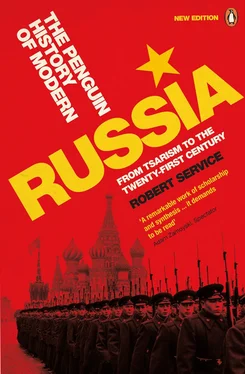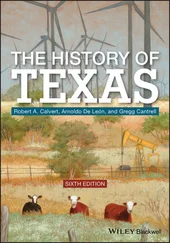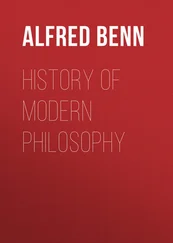life expectancy, 518
Lifshits, Yevgeni, 248
Ligachëv, Yegor: Andropov promotes, 430–31; supports Gorbachëv, 435; Gorbachëv promotes, 438; background and career, 439; undermines Gorbachëv, 452–3, 458, 460, 476; and Russian nationalism, 458; at 19th Party Conference, 461; and Yeltsin, 462, 503; disbelieves in reform, 468; taunts Yeltsin over rationing, 470; loses offices, 489, 490, 521
linguistics: Stalin’s views on, 318–19, 322
lishentsy see ‘deprived ones’
literacy: pre-1914 rates, 6; Bolsheviks increase, 140–41, 190, 205
literature and writers, 139, 248, 324, 335, 344, 365–6, 414–15, 476–7; see also samizdat
Lithuania: protest demonstrations, 57, 473, 481; Germany acquires (1918), 84; Soviet republic established (1918), 107; independence, 128; awarded to Germany in 1939 Non-Aggression Treaty, 256–7; annexed by USSR, 258, 306, 398; Germans occupy, 261; post-World War II settlement, 270, 306; SS units from, 287; post-World War II deportations, 300; culture downgraded, 316; and Khrushchëv’s denunciation of Stalin, 342; nationalism, 366, 456, 473, 478; overrules Soviet legislation, 474; independence demands, 482, 503; Yeltsin reassures, 489; Soviet forces repress (1991), 494; resists State Committee for the Emergency Situation, 502; declines to join Commonwealth of Independent States, 507
Litvinenko, Alexander, 557
Litvinov, Maksim, 254, 256
Litvinov, Pavel, 387
livestock: killed by peasants, 181
living standards: among peasants, 147; under communism, 192–3; under Gorbachëv, 469–70; changes under Yeltsin, 517–19, 525, 534, 541–2, 553–4
lobbying organizations, 514–15
Lobov, Oleg, 512
Lominadze, Beso, 187
Lozovski, Semën, 317
Ludendorff, General Erich, 75, 78
Lukyanov, Anatoli, 499, 502, 511
Lunacharski, Anatoli, 94
Luzhkov, Yuri, 540, 547
Lvov, Prince Georgi, 29–30, 33, 35–6, 49–50, 60, 80
Lysenko, Timofei, 247, 318
McCartney, Paul, 477
machine-tool industry, 468
machine-tractor stations, 181–2
Macmillan, Harold, 349, 397
magnitizdat (cassette publishing), 380
Magnitogorsk, 191, 199
Main Administration for Affairs of Literature and Publishing Houses see Glavlit
Makashov, Albert, 524
Malenkov, Georgi: Stalin promotes, 241; submits to Stalin, 252; and conduct of World War II, 262; post-World War II policies, 302; position and status, 303; and Cominform, 308; at 19th Party Congress, 325–6, 328; favours light-industrial investment, 326; and Stalin’s death, 327; offices and policies after Stalin’s death, 331–3, 337–8; and Beria’s arrest, 334; advocates consumer-goods production, 335, 347, 379; conflict with Khrushchëv, 335–7, 348; and supplies to Ukraine in World War II, 339; and 20th Party Congress, 341; mission to Hungary, 343; dismissed and posted to Kazakhstan, 344, 345; seeks better relations with USA, 352; reviled at 22nd Party Congress, 360 malnutrition see food supply managers: courted by Bolsheviks, 95; protected, 194 ; and labour discipline, 243–4; discontent, 329; and Kosygin’s reforms, 379; opportunities reduced, 422; and Yeltsin’s reforms, 514–15; see also administrators
Manchuria, 255, 257, 273
Mandelshtam, Osip, 139, 248
Manuilski, Dmitri, 161
Mao Zedong, 311–12, 354, 378, 388
‘market, the’: under NEP, 144–5; under Stalin, 194–5, 244; under Yeltsin, 509, 512–15, 534, 535, 547; and criminal gangs, 512–13; and capitalism, 514
Marshall, George: European aid plan, 308, 310
Martov, Yuri, 59, 66
Marx, Karl, 92–3, 136, 317; Das Capital , 70
Marxism: organizations formed (1890s), 18; intellectual appeal, 19–20; dissemination of, 92, 136; as religion, 136; and withering away of state, 240
Marxism-Leninism: term adopted, 154; development of, 169; and Bukharin’s Right Deviation, 176; and Russian nationalism, 205, 207; and local party committees, 216; explained in A Short Course , 237–8; and administrators, 242; and cultural expression, 249, 281, 319; and post war young rebels, 299; and science, 318–19; absolutism, 324; and collective leadership, 332; Khrushchëv promotes, 356; and non-Christian faiths, 370; lacks popular support, 418; Andropov’s belief in, 429–30; Yeltsin on discrediting of, 512
mass communication, 92–3, 191, 200, 358
Mayakovski, Vladimir, 137–9
Mazowiecki, Tadeusz, 483
Mazurov, K.T., 403
Medvedev, Dmitri, 559–62
Medvedev, Roy, 298, 366, 381, 412–14, 433, 449, 511
Medvedev, Vadim, 462, 486, 493
Medvedev, Zhores, 412, 445
Meir, Golda, 316
Mekhlis, Lev, 265
Melnikov, Vladimir, 487
Mendeleev, Dmitri Ivanovich, 8
Menshevik Party: rivalry and differences with Bolsheviks, 19–20, 63, 66, 104; repressed under Nicholas II, 29; and Provisional Government, 35; constitutional aims, 45–6; disaffected Bolsheviks join, 48; seeks end to World War I, 51–2; Kerenski seeks support from, 53; wins over army, 54; Lenin disavows, 59, 118; anti-capitalism, 62–3; and October Revolution, 65; non-cooperation in Lenin’s 1917 government, 66–7; formed, 71; excluded from Sovnarkom, 74; repressed by Bolsheviks, 93, 185; excluded from soviets, 107; Lenin proposes trials of, 128; denounced, 134; excluded from politics, 161; and opposition to Bolshevik Party, 188
mental illness, 417
Mercader, Ramon, 231
Meshcherski, V.P., 96
Meshketian Turks, 367–8, 481
Mid-Volga Regional Committee, 186
middle class: 1917 representative bodies, 39; in Bolshevik leadership, 49; demoralized by reforms, 88; terror used against, 108; in administration, 145; and private trade, 145; after communism, 553; see also bourgeoisie
‘middle-peasantization’, 90–91
Mikhail, Grand Duke, 33
Mikhelson Factory, Moscow, 107
Mikhoels, Solomon, 316
Mikoyan, Anastas: and grain procurement, 170; dissents at 17th Party Congress, 213; submits to Stalin, 219; supports Stalin, 241; visits Stalin on German invasion, 261; favours light-industrial production, 302; Stalin accuses of political cowardice, 327; position after Stalin’s death, 331; and plot against Beria, 333; denounces Stalin at 20th Party Congress, 338; visits Hungary, 343; and Novocherkassk unrest, 364; and plot to depose Khrushchëv, 376–7
Military Opposition, 112
Milosevic´ Slobodan, 537
Milyukov, Pavel Nikolaevich, 27, 30, 33–4, 36, 45, 82
miners, 514–15
Mingrelian people, 325, 339
Ministry of Economics (Russian Federation), 535
Ministry of External Affairs (Russian Federation), 537
Ministry of Internal Affairs (MVD), 332–4; see also: NKVD
minorities see nationalities and minorities
Minsk, 296, 457
Mirbach, Count Wilhelm, 103
mitingovanie (neologism), 38
Mladenov, Petar, 463–4
modernization, 192
Mogilëv, 27, 30, 33
Moldavia: deportations from, 258, 300; Romanians in, 284; famine, 304; culture downgraded, 316; repressed under Khrushchëv, 369; Brezhnev in, 383; nationalism in, 474
Moldova: resists State Committee for the Emergency Situation, 502; joins Commonwealth of Independent States, 506; see also Moldavia
Molotov, Vyacheslav M.: and Lenin’s health decline, 151; supports Stalin, 171, 175, 241; as Moscow Party Committee secretary, 176; and compulsory collectivization, 179; hard line on Party power, 213–14; and Stalin’s use of terror, 216, 221, 223; on Politburo commission, 220; medal, 236; on 1936 Constitution, 240; submits to Stalin, 252; and Nazi pact (1939), 256; and Soviet bases in Baltic states, 257; discounts German attack on USSR, 258; speech on German invasion, 261; and conduct of World War II, 262; favours concentrating industry in European areas, 302; position and status, 303; wife’s persecution, 316, 325; visits Eisenstein with Stalin, 319; Stalin accuses of political cowardice, 327; and Stalin’s death, 327; position after Stalin’s death, 331–2; opposes reform, 332; foreign policy, 337; relations with Malenkov, 337; and 20th Party Congress, 338, 341; dismissed after conflict with Khrushchëv, 344; appointed to Mongolia, 345; reviled at 22nd Party Congress, 360; retirement, 477
Читать дальше












